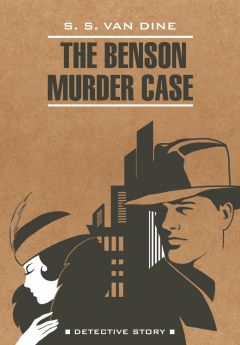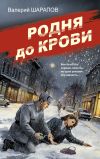
Автор книги: Стивен Ван Дайн
Жанр: Иностранные языки, Наука и Образование
Возрастные ограничения: +16
сообщить о неприемлемом содержимом
Текущая страница: 7 (всего у книги 18 страниц)
“Very well,” he assented. “You have my word. … And now what?”
After a moment Vance lit a fresh cigarette, and rose languidly.
“First,” he announced, “I shall determine the exact height of the guilty person. Such a fact will, no doubt, come under the head of indicat’ry evidence—eh, what?”
Markham stared at him incredulously.
“How, in Heaven’s name, are you going to do that?”
“By those primitive deductive methods to which you so touchingly pin your faith,” he answered easily. “But come; let us repair to the scene of the crime.”
He moved toward the door, Markham reluctantly following in a state of perplexed irritation.
“But you know the body was removed,” the latter protested; “and the place by now has no doubt been straightened up.”
“Thank Heaven for that!” murmured Vance. “I’m not particularly fond of corpses; and untidiness, y’ know, annoys me frightfully.”
As we emerged into Madison Avenue, he signalled to the commissionaire[76]76
commissionaire (фр., англ.) – швейцар; посыльный
[Закрыть] for a taxicab, and without a word, urged us into it.
“This is all nonsense,” Markham declared ill-naturedly, as we started on our journey up town. “How do you expect to find any clues now? By this time everything has been obliterated.”
“Alas, my dear Markham,” lamented Vance, in a tone of mock solicitude, “how woefully deficient you are in philosophic theory! If anything, no matter how inf’nitesimal, could really be obliterated, the universe, y’ know, would cease to exist,—the cosmic problem would be solved, and the Creator would write Q.E.D. across an empty firmament. Our only chance of going on with this illusion we call Life, d’ ye see, lies in the fact that consciousness is like an inf’nite decimal point. Did you, as a child, ever try to complete the decimal, one-third, by filling a whole sheet of paper with the numeral three? You always had the fraction, one-third, left, don’t y’ know. If you could have eliminated the smallest one-third, after having set down ten thousand threes, the problem would have ended. So with life, my dear fellow. It’s only because we can’t erase or obliterate anything that we go on existing.”
He made a movement with his fingers, putting a sort of tangible period to his remarks, and looked dreamily out of the window up at the fiery film of sky.
Markham had settled back into his corner, and was chewing morosely at his cigar. I could see he was fairly simmering with impotent anger at having let himself be goaded into issuing his challenge. But there was no retreating now. As he told me afterward, he was fully convinced he had been dragged forth out of a comfortable chair, on a patent and ridiculous fool’s errand.
Chapter IX. The Height of the Murderer
(Saturday, June 15; 5 p.m.)
When we arrived at Benson’s house a patrolman leaning somnolently against the iron paling of the areaway came suddenly to attention and saluted. He eyed Vance and me hopefully, regarding us no doubt as suspects being taken to the scene of the crime for questioning by the District Attorney. We were admitted by one of the men from the Homicide Bureau who had been in the house on the morning of the investigation.
Markham greeted him with a nod.
“Everything going all right?”
“Sure,” the man replied good-naturedly. “The old lady’s as meek as a cat—and a swell cook.”
“We want to be alone for a while, Sniffin,” said Markham, as we passed into the living-room.
“The gastronome’s name is Snitkin—not Sniffin,” Vance corrected him, when the door had closed on us.
“Wonderful memory,” muttered Markham churlishly.
“A failing of mine,” said Vance. “I suppose you are one of those rare persons who never forget a face but just can’t recall names, what?”
But Markham was in no mood to be twitted.
“Now that you’ve dragged me here, what are you going to do?” He waved his hand depreciatingly, and sank into a chair with an air of contemptuous abdication.
The living-room looked much the same as when we saw it last, except that it had been put neatly in order. The shades were up, and the late afternoon light was flooding in profusely. The ornateness of the room’s furnishings seemed intensified by the glare.
Vance glanced about him and gave a shudder.
“I’m half inclined to turn back,” he drawled. “It’s a clear case of justifiable homicide by an outraged interior decorator.”
“My dear aesthete,” Markham urged impatiently, “be good enough to bury your artistic prejudices, and to proceed with your problem. … Of course,” he added, with a malicious smile, “if you fear the result, you may still withdraw, and thereby preserve your charming theories in their present virgin state.”
“And permit you to send an innocent maiden to the chair!” exclaimed Vance, in mock indignation. “Fie, fie! La politesse[77]77
la politesse (фр.) —вежливость
[Закрыть] alone forbids my withdrawal. May I never have to lament, with Prince Henry, that ‘to my shame I have a truant been to chivalry’.”
Markham set his jaw, and gave Vance a ferocious look.
“I’m beginning to think that, after all, there is something in your theory that every man has some motive for murdering another.”
“Well,” replied Vance cheerfully, “now that you have begun to come round to my way of thinking, do you mind if I send Mr. Snitkin on an errand?”
Markham sighed audibly and shrugged his shoulders.
“I’ll smoke during the opéra bouffe[78]78
opéra bouffe (фр.) —комическая опера
[Закрыть], if it won’t interfere with your performance.”
Vance went to the door and called Snitkin.
“I say, would you mind going to Mrs. Platz and borrowing a long tape-measure and a ball of string. … The District Attorney wants them,” he added, giving Markham a sycophantic bow.
“I can’t hope that you’re going to hang yourself, can I?” asked Markham.
Vance gazed at him reprovingly.
“Permit me,” he said sweetly, “to commend Othello[79]79
Othello — «Отелло», пьеса У. Шекспира, названная по имени главного героя.
[Закрыть] to your attention:
‘How poor are they that have not patience!
What wound did ever heal but by degrees?’
Or—to descend from a poet to a platitudinarian—let me present for your consid’ration a pentameter from Longfellow: ‘All things come round to him who will but wait.’ Untrue, of course, but consolin’. Milton said it much better in his ‘They also serve—’. But Cervantes said it best: ‘Patience and shuffle the cards.’ Sound advice, Markham—and advice expressed rakishly, as all good advice should be. … To be sure, patience is a sort of last resort—a practice to adopt when there’s nothing else to do. Still, like virtue, it occasionally rewards the practitioner; although I’ll admit that, as a rule, it is—again like virtue—bootless. That is to say, it is its own reward. It has, however, been swathed in many verbal robes. It is ‘sorrow’s slave,’ and the ‘sov’reign o’er transmuted ills,’ as well as ‘all the passion of great hearts.’ Rousseau wrote, La patience est amère mais son fruit est doux[80]80
La patience est amère mais son fruit est doux! (фр.) —Терпение горько, но плод его сладок (изречение принадлежит французскому философу Ж.-Ж. Руссо).
[Закрыть]. But perhaps your legal taste runs to Latin. Superanda omnis fortuna ferendo est[81]81
Superanda omnis fortuna ferendo est. (лат.) —Каждое несчастье должно быть покорено терпением (изречение приписывается римскому поэту Вергилию).
[Закрыть], quoth Vergil. And Horace also spoke on the subject. Durum! said he, sed levius fit patientia[82]82
Durum! Sed levius fit patientia… (лат.) —Тяжко! Но перенесть лучше с покорностью… (Гораций, «Оды», I, 24)
[Закрыть]—”
“Why the hell doesn’t Snitkin come?” growled Markham.
Almost as he spoke the door opened, and the detective handed Vance the tape-measure and string.
“And now, Markham, for your reward!”
Bending over the rug Vance moved the large wicker chair into the exact position it had occupied when Benson had been shot. The position was easily determined, for the impressions of the chair’s castors on the deep nap of the rug were plainly visible. He then ran the string through the bullet-hole in the back of the chair, and directed me to hold one end of it against the place where the bullet had struck the wainscot. Next he took up the tape-measure and extending the string through the hole, measured a distance of five feet and six inches along it, starting at the point which corresponded to the location of Benson’s forehead as he sat in the chair. Tying a knot in the string to indicate the measurement, he drew the string taut, so that it extended in a straight line from the mark on the wainscot, through the hole in the back of the chair, to a point five feet and six inches in front of where Benson’s head had rested.
“This knot in the string,” he explained, “now represents the exact location of the muzzle of the gun that ended Benson’s career. You see the reasoning—eh, what? Having two points in the bullet’s course—namely, the hole in the chair and the mark on the wainscot—, and also knowing the approximate vertical line of explosion, which was between five and six feet from the gentleman’s skull, it was merely necess’ry to extend the straight line of the bullet’s course to the vertical line of explosion in order to ascertain the exact point at which the shot was fired.”
“Theoretically very pretty,” commented Markham; “though why you should go to so much trouble to ascertain this point in space I can’t imagine. … Not that it matters, for you have overlooked the possibility of the bullet’s deflection.”
“Forgive me for contradicting you,” smiled Vance; “but yesterday morning I questioned Captain Hagedorn at some length, and learned that there had been no deflection of the bullet. Hagedorn had inspected the wound before we arrived; and he was really pos’tive on that point. In the first place, the bullet struck the frontal bone at such an angle as to make deflection practically impossible even had the pistol been of smaller calibre. And in the second place, the pistol with which Benson was shot was of so large a bore—a point-forty-five—and the muzzle velocity was so great, that the bullet would have taken a straight course even had it been held at a greater distance from the gentleman’s brow.”
“And how,” asked Markham, “did Hagedorn know what the muzzle velocity was?”
“I was inquis’tive on that point myself,” answered Vance; “and he explained that the size and character of the bullet and the expelled shell told him the whole tale. That’s how he knew the gun was an army Colt automatic—I believe he called it a U. S. Government Colt—and not the ordinary Colt automatic. The weight of the bullets of these two pistols is slightly different: the ordinary Colt bullet weighs 200 grains, whereas the army Colt bullet weighs 230 grains. Hagedorn, having a hypersensitive tactile sense, was able, I presume, to distinguish the difference at once, though I didn’t go into his physiological gifts with him,—my reticent nature, you understand. … However, he could tell it was a forty-five army Colt automatic bullet; and knowing this, he knew that the muzzle velocity was 809 feet, and that the striking energy was 329—which gives a six-inch penetration in white pine at a distance of twenty-five yards. … An amazin’ creature, this Hagedorn. Imagine having one’s head full of such entrancing information! The old mysteries of why a man should take up the bass-fiddle as a life work and where all the pins go, are babes’ conundrums compared with the one of why a human being should devote his years to the idiosyncrasies of bullets.”
“The subject is not exactly an enthralling one,” said Markham wearily; “so, for the sake of argument, let us admit that you have now found the precise point of the gun’s explosion. Where do we go from there?”
“While I hold the string on a straight line,” directed Vance, “be good enough to measure the exact distance from the floor to the knot. Then my secret will be known.”
“This game doesn’t enthrall me, either,” Markham protested. “I’d much prefer ‘London Bridge’.”
Nevertheless he made the measurement.
“Four feet, eight and a half inches,” he announced indifferently.
Vance laid a cigarette on the rug at a point directly beneath the knot.
“We now know the exact height at which the pistol was held when it was fired. … You grasp the process by which this conclusion was reached, I’m sure.”
“It seems rather obvious,” answered Markham.
Vance again went to the door and called Snitkin.
“The District Attorney desires the loan of your gun for a moment,” he said. “He wishes to make a test.”
Snitkin stepped up to Markham and held out his pistol wonderingly.
“The safety’s on, sir: shall I shift it?”
Markham was about to refuse the weapon when Vance interposed.
“That’s quite all right. Mr. Markham doesn’t intend to fire it—I hope.”
When the man had gone Vance seated himself in the wicker chair, and placed his head in juxtaposition with the bullet-hole.
“Now, Markham,” he requested, “will you please stand on the spot where the murderer stood, holding the gun directly above that cigarette on the floor, and aim delib’rately at my left temple. … Take care,” he cautioned, with an engaging smile, “not to pull the trigger, or you will never learn who killed Benson.”
Reluctantly Markham complied. As he stood taking aim, Vance asked me to measure the height of the gun’s muzzle from the floor.
The distance was four feet and nine inches.
“Quite so,” he said, rising. “Y’ see, Markham, you are five feet, eleven inches tall; therefore the person who shot Benson was very nearly your own height—certainly not under five feet, ten. … That, too, is rather obvious, what?”
His demonstration had been simple and clear. Markham was frankly impressed; his manner had become serious. He regarded Vance for a moment with a meditative frown; then he said:
“That’s all very well; but the person who fired the shot might have held the pistol relatively higher than I did.”
“Not tenable,” returned Vance. “I’ve done too much shooting myself not to know that when an expert takes delib’rate aim with a pistol at a small target, he does it with a stiff arm and with a slightly raised shoulder, so as to bring the sight on a straight line between his eye and the object at which he aims. The height at which one holds a revolver, under such conditions, pretty accurately determines his own height.”
“Your argument is based on the assumption that the person who killed Benson was an expert taking deliberate aim at a small target?”
“Not an assumption, but a fact,” declared Vance. “Consider: had the person not been an expert shot, he would not—at a distance of five or six feet—have selected the forehead, but a larger target—namely, the breast. And having selected the forehead, he most certainly took delib’rate aim, what? Furthermore, had he not been an expert shot, and had he pointed the gun at the breast without taking delib’rate aim, he would, in all prob’bility, have fired more than one shot.”
Markham pondered.
“I’ll grant that, on the face of it, your theory sounds plausible,” he conceded at length. “On the other hand, the guilty man could have been almost any height over five feet, ten; for certainly a man may crouch as much as he likes and still take deliberate aim.”
“True,” agreed Vance. “But don’t overlook the fact that the murderer’s position, in this instance, was a perfectly natural one. Otherwise, Benson’s attention would have been attracted, and he would not have been taken unawares. That he was shot unawares was indicated by his attitude. Of course, the assassin might have stooped a little without causing Benson to look up. … Let us say, therefore, that the guilty person’s height is somewhere between five feet, ten, and six feet, two. Does that appeal to you?”
Markham was silent.
“The delightful Miss St. Clair, y’ know,” remarked Vance, with a japish smile, “can’t possibly be over five feet, five or six.”
Markham grunted, and continued to smoke abstractedly.
“This Captain Leacock, I take it,” said Vance, “is over six feet—eh, what?”
Markham’s eyes narrowed.
“What makes you think so?”
“You just told me, don’t y’ know.”
“I told you!”
“Not in so many words,” Vance pointed out. “But after I had shown you the approximate height of the murderer, and it didn’t correspond at all to that of the young lady you suspected, I knew your active mind was busy looking around for another possibility. And, as the lady’s inamorato was the only other possibility on your horizon, I concluded that you were permitting your thoughts to play about the Captain. Had he, therefore, been the stipulated height, you would have said nothing; but when you argued that the murderer might have stooped to fire the shot, I decided that the Captain was inord’nately tall. … Thus, in the pregnant silence that emanated from you, old dear, your spirit held sweet communion with mine, and told me that the gentleman was a six-footer no less.”
“I see that you include mind-reading among your gifts,” said Markham. “I now await an exhibition of slate-writing.”
His tone was irritable, but his irritation was that of a man reluctant to admit the alteration of his beliefs. He felt himself yielding to Vance’s guiding rein, but he still held stubbornly to the course of his own previous convictions.
“Surely you don’t question my demonstration of the guilty person’s height?” asked Vance mellifluously.
“Not altogether,” Markham replied. “It seems colorable enough. … But why, I wonder, didn’t Hagedorn work the thing out, if it was so simple?”
“Anaxagoras said that those who have occasion for a lamp, supply it with oil. A profound remark, Markham—one of those seemingly simple quips that contain a great truth. A lamp without oil, y’ know, is useless. The police always have plenty of lamps—every variety, in fact—but no oil, as it were. That’s why they never find anyone unless it’s broad daylight.”
Markham’s mind was now busy in another direction, and he rose and began to pace the floor.
“Until now I hadn’t thought of Captain Leacock as the actual agent of the crime.”
“Why hadn’t you thought of him? Was it because one of your sleuths told you he was at home like a good boy that night?”
“I suppose so.” Markham continued pacing thoughtfully. Then suddenly he swung about. “That wasn’t it, either. It was the amount of damning circumstantial evidence against the St. Clair woman… And, Vance, despite your demonstration here to-day, you haven’t explained away any of the evidence against her.—Where was she between twelve and one? Why did she go with Benson to dinner? How did her hand-bag get here? And what about those burned cigarettes of hers in the grate?—they’re the obstacle, those cigarette butts; and I can’t admit that your demonstration wholly convinces me—despite the fact that it is convincing—as long as I’ve got the evidence of those cigarettes to contend with, for that evidence is also convincing.”
“My word!” sighed Vance. “You’re in a pos’tively ghastly predic’ment. However, maybe I can cast illumination on those disquietin’ cigarette butts.”
Once more he went to the door, and summoning Snitkin, returned the pistol.
“The District Attorney thanks you,” he said. “And will you be good enough to fetch Mrs. Platz. We wish to chat with her.”
Turning back to the room, he smiled amiably at Markham.
“I desire to do all the conversing with the lady this time, if you don’t mind. There are potentialities in Mrs. Platz which you entirely overlooked when you questioned her yesterday.”
Markham was interested, though sceptical.
“You have the floor,” he said.
Chapter X. Eliminating a Suspect
(Saturday, June 15; 5.30 p.m.)
When the housekeeper entered she appeared even more composed than when Markham had first questioned her. There was something at once sullen and indomitable in her manner, and she looked at me with a slightly challenging expression. Markham merely nodded to her, but Vance stood up and indicated a low tufted Morris chair near the fireplace, facing the front windows. She sat down on the edge of it, resting her elbows on its broad arms.
“I have some questions to ask you, Mrs. Platz,” Vance began, fixing her sharply with his gaze; “and it will be best for everyone if you tell the whole truth. You understand me—eh, what?”
The easy-going, half-whimsical manner he had taken with Markham had disappeared. He stood before the woman, stern and implacable.
At his words she lifted her head. Her face was blank, but her mouth was set stubbornly, and a smouldering look in her eyes told of a suppressed anxiety.
Vance waited a moment and then went on, enunciating each word with distinctness.
“At what time, on the day Mr. Benson was killed, did the lady call here?”
The woman’s gaze did not falter, but the pupils of her eyes dilated.
“There was nobody here.”
“Oh, yes, there was, Mrs. Platz.” Vance’s tone was assured. “What time did she call?”
“Nobody was here, I tell you,” she persisted.
Vance lit a cigarette with interminable deliberation, his eyes resting steadily on hers. He smoked placidly until her gaze dropped. Then he stepped nearer to her, and said firmly:
“If you tell the truth no harm will come to you. But if you refuse any information you will find yourself in trouble. The withholding of evidence is a crime, y’ know, and the law will show you no mercy.”
He made a sly grimace at Markham, who was watching the proceedings with interest.
The woman now began to show signs of agitation. She drew in her elbows, and her breathing quickened.
“In God’s name, I swear it!—there wasn’t anybody here.” A slight hoarseness gave evidence of her emotion.
“Let us not invoke the Deity,” suggested Vance carelessly. “What time was the lady here?”
She set her lips stubbornly, and for a whole minute there was silence in the room. Vance smoked quietly, but Markham held his cigar motionless between his thumb and forefinger in an attitude of expectancy.
Again Vance’s impassive voice demanded: “What time was she here?”
The woman clinched her hands with a spasmodic gesture, and thrust her head forward.
“I tell you—I swear it—”
Vance made a peremptory movement of his hand, and smiled coldly.
“It’s no go,” he told her. “You’re acting stupidly. We’re here to get the truth—and you’re going to tell us.”
“I’ve told you the truth.”
“Is it going to be necess’ry for the District Attorney here to order you placed in custody?”
“I’ve told you the truth,” she repeated.
Vance crushed out his cigarette decisively in an ash-receiver on the table.
“Right-o, Mrs. Platz. Since you refuse to tell me about the young woman who was here that afternoon, I’m going to tell you about her.”
His manner was easy and cynical, and the woman watched him suspiciously.
“Late in the afternoon of the day your employer was shot, the door-bell rang. Perhaps you had been informed by Mr. Benson that he was expecting a caller, what? Anyhow, you answered the door and admitted a charming young lady. You showed her into this room … and—what do you think, my dear Madam!—she took that very chair on which you are resting so uncomfortably.”
He paused, and smiled tantalizingly.
“Then,” he continued, “you served tea to the young lady and Mr. Benson. After a bit she departed, and Mr. Benson went upstairs to dress for dinner. … Y’ see, Mrs. Platz, I happen to know.”
He lit another cigarette.
“Did you notice the young lady particularly? If not, I’ll describe her to you. She was rather short—petite[83]83
petite (фр.) —маленькая, невысокая
[Закрыть] is the word. She had dark hair and dark eyes, and she was dressed quietly.”
A change had come over the woman. Her eyes stared; her cheeks were now grey; and her breathing had become audible.
“Now, Mrs. Platz,” demanded Vance sharply, “what have you to say?”
She drew a deep breath.
“There wasn’t anybody here,” she said doggedly. There was something almost admirable in her obstinacy.
Vance considered a moment. Markham was about to speak, but evidently thought better of it, and sat watching the woman fixedly.
“Your attitude is understandable,” Vance observed finally. “The young lady, of course, was well known to you, and you had a personal reason for not wanting it known she was here.”
At these words she sat up straight, a look of terror in her face.
“I never saw her before!” she cried; then stopped abruptly.
“Ah!” Vance gave her an amused leer. “You had never seen the young lady before—eh, what? … That’s quite possible. But it’s immaterial. She’s a nice girl, though, I’m sure—even if she did have a dish of tea with your employer alone in his home.”
“Did she tell you she was here?” The woman’s voice was listless. The reaction to her tense obduracy had left her apathetic.
“Not exactly,” Vance replied. “But it wasn’t necess’ry: I knew without her informing me. … Just when did she arrive, Mrs. Platz?”
“About a half-hour after Mr. Benson got here from the office.” She had at last given over all denials and evasions. “But he didn’t expect her—that is, he didn’t say anything to me about her coming; and he didn’t order tea until after she came.”
Markham thrust himself forward.
“Why didn’t you tell me she’d been here, when I asked you yesterday morning?”
The woman cast an uneasy glance about the room.
“I rather fancy,” Vance intervened pleasantly, “that Mrs. Platz was afraid you might unjustly suspect the young lady.”
She grasped eagerly at his words.
“Yes, sir—that was all. I was afraid you might think she—did it. And she was such a quiet, sweet-looking girl. … That was the only reason, sir.”
“Quite so,” agreed Vance consolingly. “But tell me: did it not shock you to see such a quiet, sweet-looking young lady smoking cigarettes?”
Her apprehension gave way to astonishment.
“Why—yes, sir, it did. … But she wasn’t a bad girl—I could tell that. And most girls smoke nowadays. They don’t think anything of it, like they used to.”
“You’re quite right,” Vance assured her. “Still, young ladies really shouldn’t throw their cigarettes in tiled, gas-log fireplaces, should they, now?”
The woman regarded him uncertainly; she suspected him of jesting.
“Did she do that?” She leaned over and looked into the fireplace. “I didn’t see any cigarettes there this morning.”
“No, you wouldn’t have,” Vance informed her. “One of the District Attorney’s sleuths, d’ ye see, cleaned it all up nicely for you yesterday.”
She shot Markham a questioning glance. She was not sure whether Vance’s remark was to be taken seriously; but his casualness of manner and pleasantness of voice tended to put her at ease.
“Now that we understand each other, Mrs. Platz,” he was saying, “was there anything else you particularly noticed when the young lady was here? You will be doing her a good service by telling us, because both the District Attorney and I happen to know she is innocent.”
She gave Vance a long shrewd look, as if appraising his sincerity. Evidently the results of her scrutiny were favorable, for her answer left no doubt as to her complete frankness.
“I don’t know if it’ll help, but when I came in with the toast Mr. Benson looked like he was arguing with her. She seemed worried about something that was going to happen, and asked him not to hold her to some promise she’d made. I was only in the room a minute, and I didn’t hear much. But just as I was going out, he laughed and said it was only a bluff, and that nothing was going to happen.”
She stopped, and waited anxiously. She seemed to fear that her revelation might, after all, prove injurious rather than helpful to the girl.
“Was that all?” Vance’s tone indicated that the matter was of no consequence.
The woman demurred.
“That was all I heard; but … there was a small blue box of jewellery sitting on the table.”
“My word!—a box of jewellery! Do you know whose it was?”
“No, sir, I don’t. The lady hadn’t brought it, and I never saw it in the house before.”
“How did you know it was jewellery?”
“When Mr. Benson went upstairs to dress, I came in to clear the tea things away, and it was still sitting on the table.”
Vance smiled.
“And you played Pandora and took a peep—eh, what? Most natural,—I’d have done it myself.”
He stepped back, and bowed politely.
“That will be all, Mrs. Platz. … And you needn’t worry about the young lady. Nothing is going to happen to her.”
When she had left us, Markham leaned forward and shook his cigar at Vance.
“Why didn’t you tell me you had information about the case unknown to me?”
“My dear chap!” Vance lifted his eyebrows in protestation. “To what do you refer specifically?”
“How did you know this St. Clair woman had been here in the afternoon?”
“I didn’t; but I surmised it. There were cigarette butts of hers in the grate; and, as I knew she hadn’t been here on the night Benson was shot, I thought it rather likely she had been here earlier in the day. And since Benson didn’t arrive from his office until four, I whispered into my ear that she had called sometime between four and the hour of his departure for dinner. … An element’ry syllogism, what?”
“How did you know she wasn’t here that night?”
“The psychological aspects of the crime left me in no doubt. As I told you, no woman committed it,—my metaphysical hypotheses again; but never mind. … Furthermore, yesterday morning I stood on the spot where the murderer stood, and sighted with my eye along the line of fire, using Benson’s head and the mark on the wainscot as my points of coinc’dence. It was evident to me then, even without measurements, that the guilty person was rather tall.”
“Very well. … But how did you know she left here that afternoon before Benson did?” persisted Markham.
“How else could she have changed into an evening gown? Really, y’ know, ladies don’t go about décolletées[84]84
décolletées зд. pl. от фр. décolleté – декольте (досл. без воротника); платье с глубоким вырезом
[Закрыть] in the afternoon.”
“You assume, then, that Benson himself brought her gloves and hand-bag back here that night?”
“Someone did,—and it certainly wasn’t Miss St. Clair.”
“All right,” conceded Markham. “And what about this Morris chair?—how did you know she sat in it?”
“What other chair could she have sat in, and still thrown her cigarettes into the fireplace? Women are notoriously poor shots, even if they were given to hurling their cigarette stubs across the room.”
“That deduction is simple enough,” admitted Markham. “But suppose you tell me how you knew she had tea here unless you were privy to some information on the point?”
“It pos’tively shames me to explain it. But the humiliating truth is that I inferred the fact from the condition of yon samovar. I noted yesterday that it had been used, and had not been emptied or wiped off.”
Markham nodded with contemptuous elation.
“You seem to have sunk to the despised legal level of material clues.”
“That’s why I’m blushing so furiously. … However, psychological deductions alone do not determine facts in esse[85]85
in esse (лат.) —досл. в бытии; действительно, реально
[Закрыть], but only in posse[86]86
in posse (лат.) —досл. в возможности; потенциально
[Закрыть]. Other conditions must, of course, be considered. In the present instance the indications of the samovar served merely as the basis for an assumption, or guess, with which to draw out the housekeeper.”
Правообладателям!
Это произведение, предположительно, находится в статусе 'public domain'. Если это не так и размещение материала нарушает чьи-либо права, то сообщите нам об этом.








































